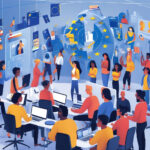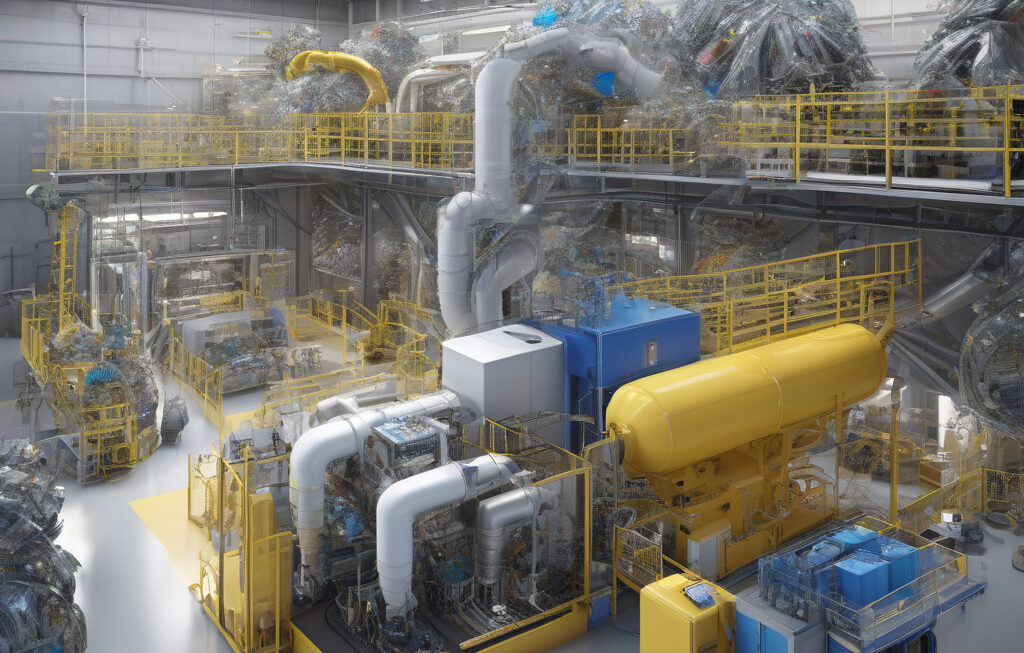40 Jobs Highly Vulnerable to AI Automation: Insights from Microsoft Study
In a world where technological advancements are rapidly reshaping the employment landscape, the specter of AI automation looms large over various industries. A recent study conducted by Microsoft has identified 40 jobs that are highly vulnerable to being replaced by artificial intelligence. The findings shed light on the shifting dynamics of the job market and underscore the importance of upskilling and adaptability in the face of automation.
While automation has the potential to streamline processes, increase efficiency, and drive innovation, it also poses a significant threat to certain occupations. According to the study, jobs that are most susceptible to AI automation are those that involve routine tasks, predictable activities, and limited creative or critical thinking. Occupations that fall into this category include data entry clerks, telemarketers, and assembly line workers.
Conversely, the study highlights that the safest occupations are those that require in-person work or caregiving expertise. Roles such as nursing assistants, phlebotomists, roofers, and chefs rely on human interaction, empathy, and dexterity – qualities that are difficult to replicate with artificial intelligence. These jobs involve a high degree of complexity, adaptability, and emotional intelligence, making them less susceptible to automation.
For example, nursing assistants play a crucial role in providing hands-on care to patients, assisting with daily activities, and offering emotional support. The nuanced nature of their work demands empathy, compassion, and interpersonal skills, which are deeply ingrained in the human experience. While AI can enhance certain aspects of healthcare delivery, such as diagnostics and data analysis, it cannot replace the human touch and empathy that nursing assistants provide.
Similarly, chefs rely on creativity, intuition, and sensory perception to craft culinary delights that tantalize the taste buds. The art of cooking involves a blend of science and artistry, requiring a deep understanding of flavors, textures, and cultural nuances. While AI can assist with recipe recommendations and kitchen automation, it cannot replicate the passion and creativity that chefs bring to their craft.
In contrast, jobs that involve repetitive tasks, data processing, and rule-based decision-making are at a higher risk of automation. For instance, data entry clerks primarily focus on inputting, updating, and maintaining electronic databases – tasks that can be easily automated through AI-driven software. Similarly, telemarketers rely on scripted interactions and standardized sales pitches, making their roles ripe for automation through chatbots and virtual assistants.
As we navigate the era of AI automation, it is essential for workers to adapt to the changing demands of the job market. Upskilling in areas that emphasize creativity, critical thinking, emotional intelligence, and complex problem-solving can help individuals future-proof their careers and remain competitive in the digital age. By cultivating skills that are uniquely human, such as empathy, adaptability, and creativity, workers can carve out a niche that is resistant to automation.
In conclusion, the Microsoft study serves as a wake-up call for industries and workers alike, highlighting the pressing need to adapt to the evolving technological landscape. While AI automation presents opportunities for innovation and efficiency, it also poses challenges for certain occupations. By focusing on roles that require human-centric skills and qualities, such as caregiving and in-person interaction, individuals can position themselves for long-term success in an increasingly automated world.
AI Automation, Microsoft Study, Future of Work, Upskilling, Human-Centric Jobs











